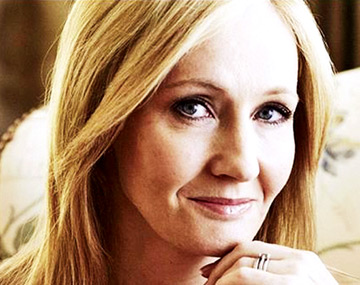New chapter in anti-Amazon feelings
Amazon's dominance of the book industry may have reached a
tipping-point.
|

JK Rowling, under her pseudonym Robert Galbraith, tweeted:
“There are lots of ways to order.” |
For years, publishers in Britain and America have complained
privately about the online giant's tough negotiating tactics and
relentless discounting, but few have been willing to speak out.
However, the decision by Hachette, one of the "Big Five" publishers,
to refuse to agree to a new contract with Amazon in America in a row
about pricing could be a seminal moment.
Hachette has gone public after customers began asking why some of its
books have been unavailable to buy on Amazon. Other titles are being
offered at full price, instead of on discount, or are taking many weeks
to ship. "By preventing its customers from connecting with these
authors' books, Amazon indicates that it considers books to be like any
other consumer good," says Hachette. "They are not."
The impact has already been dramatic. A few weeks into the dispute
that began a month ago, Hachette lost the number one spot on the Digital
Book World best-seller list of ebooks in what news agency Bloomberg
called "a palpable sign of Amazon's dominance in the publishing
industry".
Authors are livid. US TV chat show host (and Hachette author) Stephen
Colbert is so angry that he "gave the finger" twice to Amazon chief
executive Jeff Bezos on his TV show.
"This is a big blow to my bottom line," warned the waspish Colbert.
"This has pushed me past my tipping point... "
To make his point, Colbert called upon viewers to buy the book
California by Hachette author Edan Lepucki via an independent bookseller
in Oregon. It instantly became a best seller.
James Patterson published a post on Facebook under the headline of
"Read four of the most important paragraphs I'll ever write," in which
the author declared: "The press doesn't seem to consider this
newsworthy, but there is a war going on between Amazon and book
publishers.
"This war involves money of course... Currently, Amazon is making it
difficult to order many books from Little, Brown and Grand Central,
which affects readers of authors such as Malcolm Gladwell, Nicholas
Sparks, Michael Connelly, me and hundreds of others whose living depends
on book sales.
"If the world of books is going to change to ebooks, so be it. But I
think it's essential that someone steps up and takes responsibility for
the future of American literature and the part it plays in our culture.
"Right now, bookstores, libraries, authors and books themselves are
caught in the crossfire of an economic war. If this is the new American
way, then maybe it has to be changed - by law, if necessary -
immediately, if not sooner."
This dispute is far from being only an American problem. David
Potter, chairman of Girl With The Dragon Tattoo publisher Quercus until
April, revealed earlier that it was embroiled in a secret stand-off with
Amazon in Britain for six months last year as the US giant demanded what
he said was "constant discount, discount, discount". In a precursor to
the Hachette dispute in America, some of Quercus's books were
unavailable to buy on Amazon and the small independent publisher lost
revenue. Combined with other factors, including its bank debt, Quercus
fell to a significant loss and was sold abruptly earlier this year for
£12.6m - ironically to Hachette. Potter says Amazon, with close to 90
percent of the UK ebook market and 60 percent in America, is too
dominant.
"It is completely bizarre that it can behave like a cheetah which is
grinding gazelles into the ground," he declares. "That shows me that
regulators and administrators have not caught up with how the internet
is changing the books industry." Part of Amazon's success has come from
running at wafer-thin margins to keep prices low, helping to send its
global sales soaring to $74.5bn last year.
"Negotiating for acceptable terms is an essential business practice
that is critical to keeping service and value high for customers in the
medium and long term," explained Amazon, as it defended its behaviour in
its dispute with Hachette.
Amazon says Hachette has acted in "good faith", but adds pointedly
that the French-owned publisher is "part of a $10bn media conglomerate".
- The Independent
|

